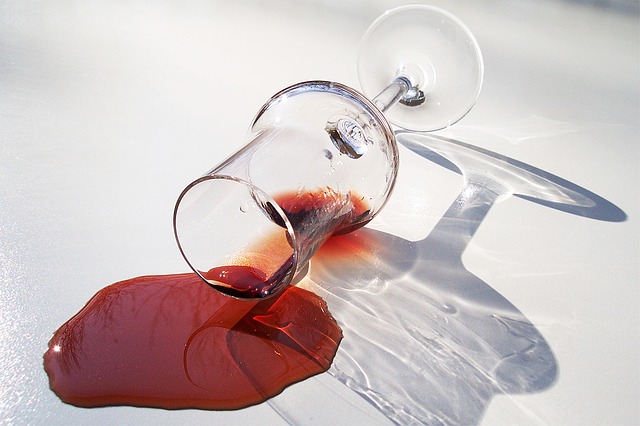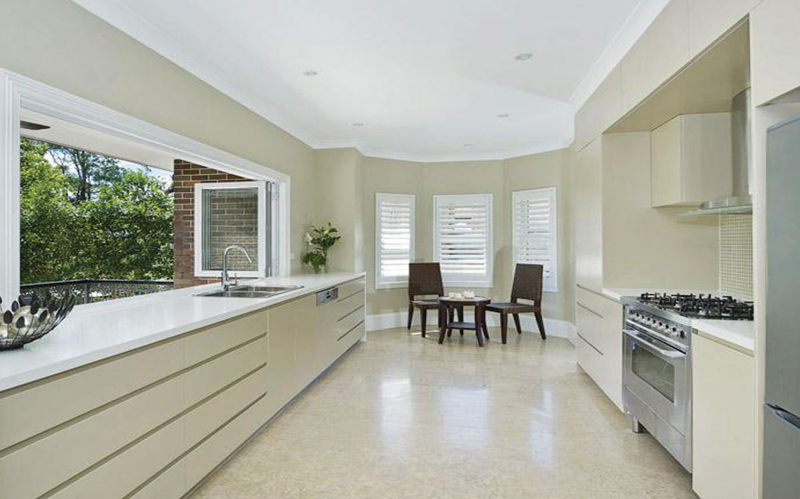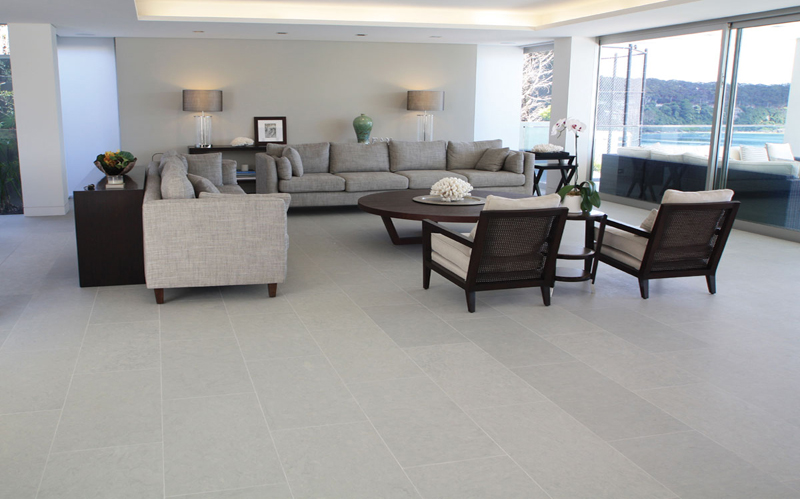1. Sealing your floor is so important.
There are a number of reasons as to why sealing your floor is so important.
Sealing stone and tile is like taking out an insurance policy. As the saying goes “prevention is better than cure”. Stone is naturally porous; basically meaning it’s like a sponge. Any liquid that comes in contact with unsealed stone will not only touch the face of the stone, it will be absorbed into the stone. Drinking red wine is a common occurrence worldwide – and many are familiar with the syndrome, which comes with the consumption of a bottle (or two), called ‘flailing arms’.
The permanent, unsightly damage that occurs when flailing arms, meets unsealed stone is not something you want to have to deal with. You would have to choose to either replace the stone, which can be expensive, time consuming, messy and there’s the risk of not being able to perfectly match the batch of your stone; or work out your story to convince future visitors that the stain is red wine and not the result of some horrific accident!

Now this image is a fine example of how a sealed stone handles a spill. If you look closely enough, you should be able to see the stone smiling. Science = Magic. By sealing your stone, not only will your stone be smiling, so will you.
Sealing your stone at regular intervals is a small financial investment, for huge peace of mind when it comes to the resale value of your home. The stone will look as good as the day it was laid and will last a lifetime if simple, regular maintenance and a little love is applied.
It’s important to note that a sealer will make your stone stain resistant, not stain proof. Sealers provide you with time to react to a spill, so that you can clean it up in time before the stain penetrates into the stone. You should also use coasters and heat mats or trivets to help protect stone bench tops.
2. Which floor surfaces need to be sealed?
High traffic areas, anywhere that spills or stains are likely, bathrooms or any porous floor that you want to keep in pristine condition, should be regularly sealed, this can include bench tops too.
3. How do you determine what type of sealer is the best one for the job?
It can depend on a number of factors such as stone porosity & density (or hardness), where it is installed, stone type and what look you want to achieve.
There are different types of sealers that you can use on your natural stone tiles but they mainly fall into two categories – penetrating/impregnating sealers, which absorb into the pores of the stone, and coating sealers which are topical (they leave a film on top of the stone). More on that one next time!
Always ask the advice of a professional before choosing a sealer. The main thing that needs to be considered is do you want a natural look or do you want to enhance the colour of the stone?
4. Is one coat of sealer enough protection for a stone floor?
When you are laying natural stone tiles, they actually need to be sealed twice. This should be done by the tiler or a professional.
The primary seal is done before the tiles are grouted, applied to the face of the tile. This is important as it greatly reduces the porosity of the stone, leaving it easier to clean when grouting and less likely for grout haze to form and stick. The secondary seal is done after the tiles are grouted and cleaned. It further protects the natural stone until a reapplication is due.
Did you just say reapplication I hear you ask? Yes, I did. You’ve installed a natural stone. This stone needs your ongoing love and support. Liken it to your car. Over time, the polish wears off and it needs to be reapplied to keep your car looking shiny and new. This will happen to your stone too.
Re-sealing should be done every few years on average to ensure that the stone stays well coated and is fully protected. Your tiler can advise you about ongoing maintenance so that you can manage this application yourself. If you aren’t confident however, you should seek the help of a professional.

5. How often should you reseal your floors?
It’s hard to say a definite number of years, because it can be dependent on a few factors, especially how you clean it. It’s wise to avoid most cleaners that you would find in a general supermarket as they contain chemicals that can etch or dull the stone and strip existing sealer. Vinegar, lemon, orange, bleach, ammonia and cleaners containing other acids can all be potentially hazardous to your stone.
It’s best to find a neutral cleaner. That’s why the STONETECH® Professional range is so brilliant. They’ve designed cleaners that they’ve tested against their range of sealers to ensure that you don’t have to worry.
Generally speaking, if you’ve cleaned your floors and benchtops correctly, resealing is expected every 3-5 years for interior surfaces and 1-3 years for exterior surfaces. This will help to keep your stone looking its best.
To check to see if a stone needs sealing, there is a simple water test that can be performed. Basically, spill some water on the stone. Wait 10-15 mins. Wipe the water away. If the stone did not darken, it means it’s perfectly sealed. If you are unsure, it may be worthwhile asking a professional.
6. How long should you allow before you can walk on your floor after resealing?
The best advice is to follow manufacturer’s instructions, but a general rule of thumb is 6-8 hours for light foot traffic. Sealers can take 24-72 hours before they are fully cured.
STONETECH® Professional Range offers a professional range of products to protect, clean or transform your stone and tile. To find out more about our STONETECH® Professional Range call (02) 9666 9222 and discuss your stone care needs with one of our knowledgeable Staff or you can visit our website for more about each product www.sareenstone.com.au
